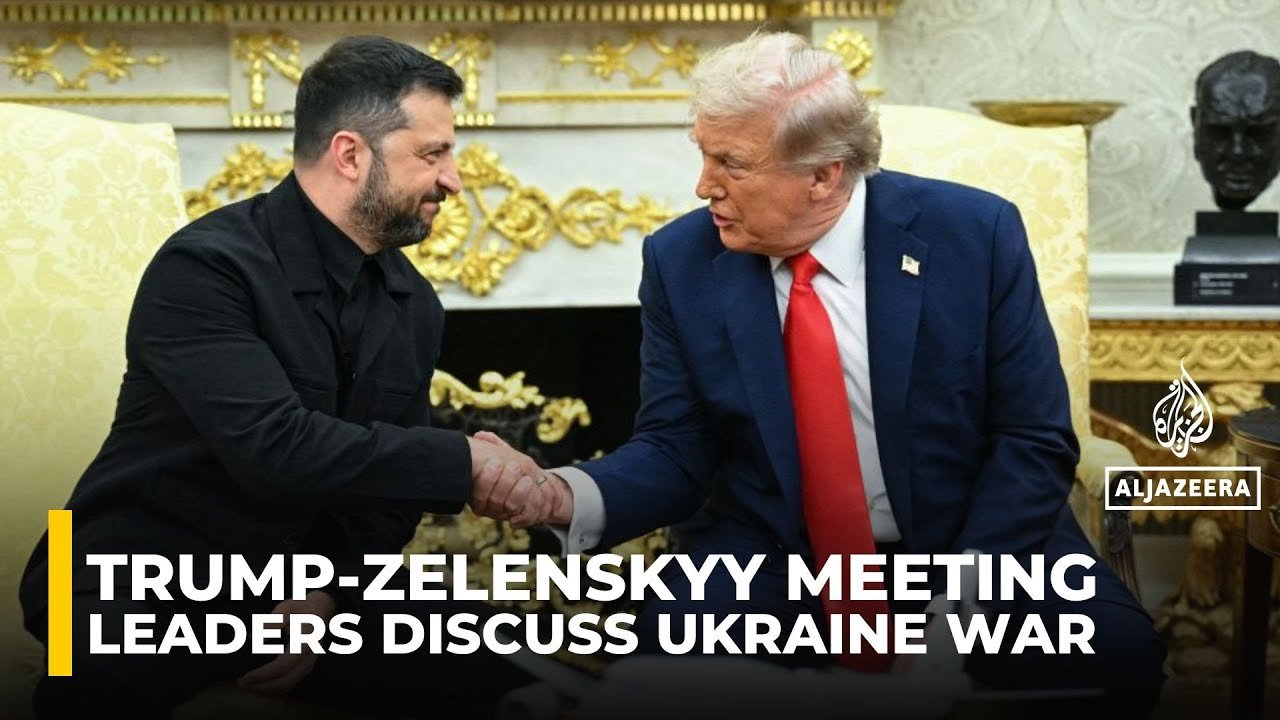The Russia-Ukraine war, now stretching beyond three years, has reshaped lives, economies, and global politics. With millions displaced and entire regions devastated, the push for peace has never been more urgent. Recent developments suggest trilateral talks involving Russia, Ukraine, and a mediator could be on the horizon, offering a glimmer of hope. But what can we expect? Will these talks finally pave the way to peace, or are they destined to stall like past efforts? Let’s explore through five critical questions.
Can Trilateral Talks Actually Happen?
Direct negotiations between Russia and Ukraine have repeatedly faltered, often due to deep mistrust and conflicting demands. The idea of trilateral talks, involving a neutral third party, aims to bridge this gap. However, choosing a mediator acceptable to both sides is a hurdle.
- The challenge: Russia may distrust U.S. or EU mediators, while Ukraine could question the impartiality of countries like China or Turkey.
- Recent efforts: Talks in Istanbul in May 2025 yielded no ceasefire but did result in a prisoner exchange, showing some dialogue is possible.
- Next steps: The White House is considering locations like Budapest or Switzerland for a potential summit, though Russia’s participation remains unconfirmed.
The success of these talks hinges on finding a mediator both nations trust—a tall order in today’s polarized geopolitical climate.
What Are Ukraine’s Demands?
Ukraine has been unwavering in its stance: sovereignty and territorial integrity are non-negotiable. Since Russia’s annexation of Crimea in 2014 and its control over parts of eastern Ukraine in 2022, Kyiv has demanded:
- Complete withdrawal of Russian troops from all occupied territories.
- Restoration of Ukraine’s pre-2014 borders, including Crimea and Donbas.
- Robust security guarantees to prevent future aggression, potentially involving European-led support.
However, Russia’s firm grip on these regions complicates matters. Ukraine faces pressure to consider compromises, but President Volodymyr Zelenskyy insists any deal must prioritize lasting peace, not a temporary pause.
What Is Russia’s Strategy?
Russia views the conflict through the lens of its national security and global influence. Moscow has consistently opposed NATO’s eastward expansion, seeing Ukraine’s potential membership as a direct threat. Its likely demands in trilateral talks include:
- A guarantee that Ukraine will not join NATO.
- Easing of Western sanctions imposed since the invasion.
- Recognition, even implicitly, of its control over Crimea and parts of Donbas.
Russia’s slow but steady battlefield advances in 2025 suggest it may push for terms that favor its current territorial gains, potentially stalling talks unless pressured by global powers.
How Crucial Is the International Community’s Role?
The international community has been a driving force in this conflict, with the U.S. and EU providing Ukraine with billions in military and economic aid, while Russia finds support from nations like China and Iran. The success of trilateral talks depends heavily on external players:
- U.S. influence: President Donald Trump’s push for a Zelenskyy-Putin summit, followed by a trilateral meeting, signals active U.S. involvement.
- European support: Leaders like Germany’s Friedrich Merz and France’s Emmanuel Macron advocate for a ceasefire as a prerequisite, contrasting Trump’s focus on direct peace negotiations.
- Other players: Turkey has offered to host talks, leveraging its neutral stance, while China’s role could sway Russia.
Geopolitical rivalries could either propel talks forward or keep them mired in power plays.
Is Peace Truly Possible?
The human toll—thousands dead, millions displaced, and economies in tatters—underscores the urgency of peace. Yet, achieving it is complex. While trilateral talks signal progress, several obstacles remain:
- Divergent goals: Ukraine seeks full sovereignty; Russia demands concessions on NATO and territory.
- Public sentiment: A 2025 Gallup poll shows 69% of Ukrainians favor negotiations, up from 22% in 2022, but trust in Russia’s intentions is low.
- Ceasefire debate: European leaders push for a truce before talks, while Russia and Trump lean toward direct negotiations, complicating the path forward.
Peace requires both sides to prioritize humanitarian needs over political agendas—a challenging but not impossible goal.
| Key Aspects of Trilateral Talks | Details |
|---|---|
| Participants | Russia, Ukraine, and a mediator (e.g., U.S., Turkey, or Switzerland) |
| Ukraine’s Demands | Full withdrawal of Russian troops, restored borders, security guarantees |
| Russia’s Demands | No NATO membership for Ukraine, sanctions relief, territorial concessions |
| Potential Mediators | U.S., Turkey, Switzerland, or China |
Major Challenges | Mutual distrust, ceasefire disagreements, geopolitical rivalries |
Conclusion: A Fragile Hope for Peace
The Russia-Ukraine trilateral talks in 2025 represent a critical opportunity to end a devastating conflict that has reverberated globally. While the prospect of a Zelenskyy-Putin summit, potentially followed by a meeting with Trump, sparks hope, success is far from guaranteed. Trust, compromise, and international pressure will be key. For the millions affected, these talks are more than diplomacy—they’re a chance to rebuild lives. Stay tuned as the world watches this delicate dance toward peace.
FAQ: Ukraine-Russia Trilateral Talks
What are the Ukraine-Russia peace talks?
They’re diplomatic efforts to resolve the ongoing war, aiming for a sustainable ceasefire and long-term peace agreement.
What does “trilateral talks” mean here?
It refers to negotiations involving Russia, Ukraine, and a third-party mediator to facilitate dialogue and build trust.
Why is a third party needed?
Direct talks between Russia and Ukraine often fail due to mistrust. A neutral mediator helps create a balanced platform.
Which countries might mediate?
Potential mediators include the U.S., Turkey, Switzerland, or China, depending on acceptability to both sides.
What are Ukraine’s main demands?
Ukraine demands Russian troop withdrawal, restoration of its borders (including Crimea), and strong security guarantees.




